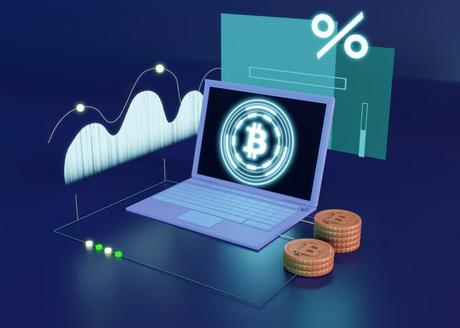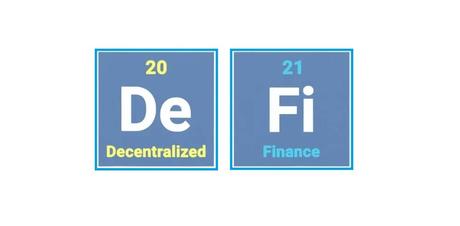Banks, central authorities, and intermediaries have long controlled your access and control of your money and have always dominated the traditional financial system.
But as blockchain technology rises, the financial landscape boss goves on a radical transformation.
Decentralized Finance (DeFi) is a blockchain powered approach that aims to disrupt the very concept of financial services and democratize access to them.
In this blog we will talk about what DeFi is, how it works and why it will change finance forever.
From Start to Finish, What is Decentralized Finance (DeFi)?
DeFi, for short, denotes a new financial system that consists of decentralized applications (dapps) and smart contracts that accommodate financial services on the blockchain. Instead of depending on some central authority such as bank, DeFi doesn’t have any intermediaries: users are directly involved with their financial assets.
The majority of DeFi platforms are running on blockchains including Ethereum and other network where users can borrow, lend, trade, and earn interest on assets through DeFi protocols.
The same loan, insurance, savings, and investments services which traditional finance provide exists in these platforms, and gives these services in a completely decentralized and trustless environment.
How Blockchain Powers DeFi
DeFi is built on top of Blockchain. Firstly, it makes sure that all transactions are transparent, secure and immutable. Here are a few key ways blockchain drives the DeFi ecosystem:

- Decentralization: The presence of the blockchain obviates the provision of banks and payment processors. Instead, users already transact with each other directly through smart contracts, which are self-executing contracts written into the code. It makes that a trustless system, without the users relying on a central authority.
- Transparency: A public ledger on which every transaction that occurs on the blockchain is recorded can be seen by anyone. The more transparent this is, the less fraud is likely to be occurring, and there is increased accountability in financial transactions.
- Immutability: Once the blockchain records a transaction it cannot be changed or deleted. This immutability then becomes a highly secure financial system.
- Security: Data is stored and secured in Blockchain by cryptographic algorithms that make it extremely difficult for evil doers to access the transactions or data.
Together, these are value propositions that make blockchain a great foundation for DeFi, enabling users’ access to financial services with low risk and maximum control.
Key Benefits of DeFi
DeFi offers several significant advantages over traditional finance:
Financial Inclusion
Fi can enable financial services to the unbanked and underbanked populations everywhere. Traditional financial institutions can be very black and white: balance of at least $[x] dollars, minimum deposits every month, geographical access to branches … excluding millions from the system. DeFi breaks the barriers, removing these barriers and changing the world where people with an internet connection can now access loans, savings, and investment opportunities.

Eliminating Middlemen
The rich in traditional finance pay fees to intermediaries like banks, payment processors, and brokers that get involved in transactions. With DeFi, these intermediaries disappear, cutting down on the costs of a transaction and making the world’s financial services available to everybody.
Transparency and Trust
Main criticism of traditional finance lies in the fact that the institutions do not show transparency when it comes to handling user funds. DeFi platform is totally transparent or all transactions and smart contract codes became open for audit. This allows for a trustless environment in which users can verify the system in a trustworthy way without third party oversight.
Accessibility
DeFi platforms are always on, all the time delivering financial services round the clock, without limitations imposed by business hours, bank holidays or geographical boundaries. And so people and businesses within emerging markets find DeFi so appealing because of global accessibility.

Programmable Money
Programmable financial services are provided by smart contracts. In one example, lending platforms can automatically liquidate collateral if a loan goes unpaid or decentralized exchange can instantly pair buyers and sellers without human intervention.
Challenges Facing DeFi
While DeFi has enormous potential, there are several challenges that need to be addressed before it can achieve mainstream adoption:

Regulatory Uncertainty
How to regulate blockchain and DeFi still perplexes governments worldwide. Uncertainty can be created in terms of users as well developers by lack of clear regulatory frameworks that can hinder the growth of the ecosystem.
Scalability
The vast majority of DeFi benefits run on Ethereum, as its use as a public blockchain continues to grow, transaction fees climb and processing times increase. But amongst all this, scalability has been and still is a big challenge in DeFi, especially now that the number of users in the space is increasing.
Security Risks
Unlike blockchain itself, smart contract code code can be vulnerable to hacks and exploits. Cybersecurity has emerged as a huge concern for a number of platforms on the decentralized finance landscape — which provides several avenues to double check platform integrity and reduce security vulnerability.

The Future of DeFi
However, the future of DeFi is bright. Yet as blockchain continues to develop, the solutions for scalability such as Ethereum 2.0 and Layer 2 protocols are being expected to bring down transaction fees and move DeFi platforms towards efficiency. This is further evidenced by greater regulatory clarity which will likely bring new institutions into the space and, in turn, more liquidity and credibility to the ecosystem.
Eventually, DeFi has the possibility to change the traditional finance towards more inclusive, transparent and more efficient financial services. With a growing number of blockchain deployments, DeFi looks poised to establish itself as the default for accessing loans, investments and savings the world over.

